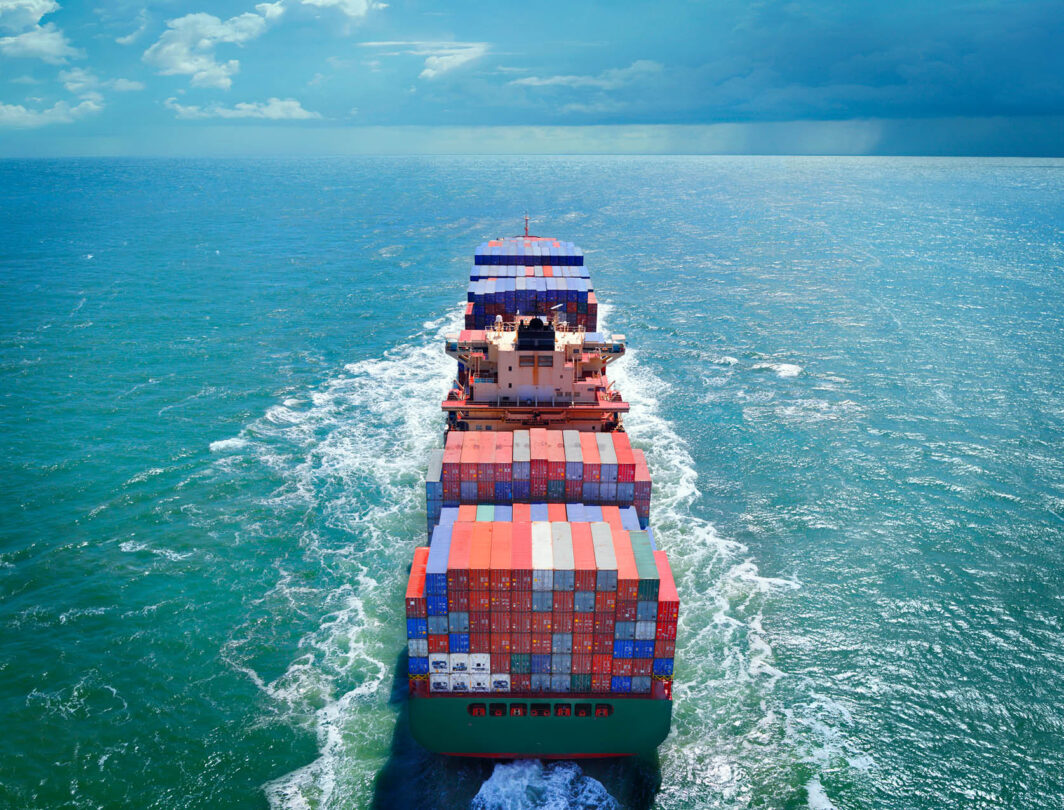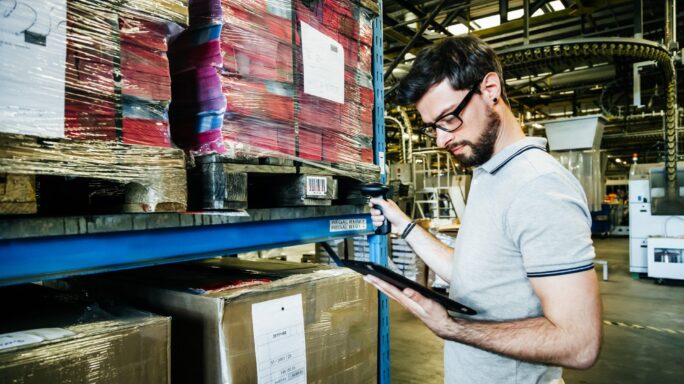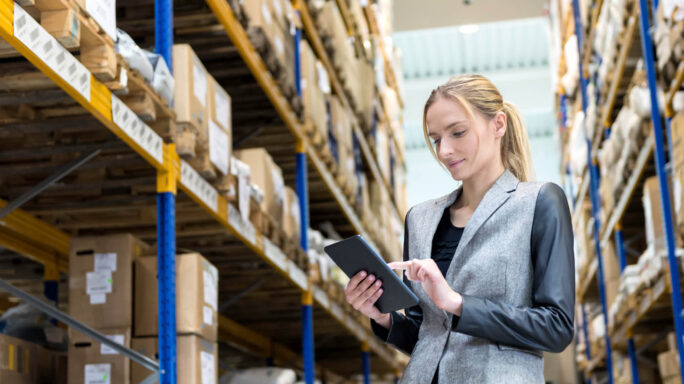How does Brexit affect freight forwarding for small businesses?
How does Brexit affect freight forwarding? Read this for answers and input from BIFA, a trade body that represents many UK freight forwarders.

Following the end of the Brexit transition period, from 1 January 2021, moving goods between Great Britain (England, Scotland and Wales) and European Union (EU) countries will understandably become more complicated, as will moving goods through EU countries en-route for another country.
There will be a customs border between the countries in Great Britain and the EU.
Meanwhile, Northern Ireland will remain part of the EU customs and VAT regime when it comes to trade with Ireland and the rest of the EU.
But from a customs and VAT perspective, moving goods between Great Britain and Northern Ireland won’t change from how things were handled prior to Brexit and the end of the transition period.
Businesses across Great Britain need to consider freight forwarding for the first time. Others that already utilise this service will need to understand the changes that are coming.
How will the end of the Brexit transition period affect freight forwarding? Read on to find out – this article covers the following topics:
How will Brexit affect freight forwarding?
Planning for freight forwarding following Brexit
Steps to take now to prepare for using freight forwarders
How to use a freight forwarder following Brexit
What is freight forwarding?
Freight forwarders are like a travel agency for freight. They aim to provide a complete ‘door-to-door’ service between seller and buyer.
Alternatively, some might offer a ‘door-to-port’ service (and vice versa), or even just a ‘port-to-port’ service. You or your customer will have to handle logistics before and after this.
But freight forwarding is about more than merely moving the freight.
Freight forwarders know the documentation required – export, customs, licensing, security and safety. Often they use their knowledge of customs to ensure you pay the lowest costs.
A freight forwarder may have in-house transport services but, in any event, they will sort out the required logistics on your behalf – road, rail, air and ship.
Often, they take advantage of block booking for reduced costs. If the freight needs warehousing, or special customs procedures, they also take care of that, as well as insurance too.
They differ from customs brokers, who focus only on the customs paperwork and payments.
Freight forwarders are licensed in some countries. In the US, for example, they are licensed and regulated by the Federal Maritime Commission. In the UK, there’s no licensing requirement.
There are umbrella bodies that freight forwarders are often members of, such as the British International Freight Association (BIFA). These organisations ensure standardisation in contracts and expectations.
Freight forwarding costs money, of course. Normally you pay upfront. But freight forwarding pays for itself in administrative time savings, as well as reducing the potential for delays.
As such, many businesses consider it an essential investment, while their customers often expect it as a matter of course.
How will Brexit affect freight forwarding?
Prior to Brexit and the end of the transition period, there were no customs borders between EU states.
This arrangement virtually eliminated customs delays and paperwork required to move goods. It meant there were no customs duties to pay.
Goods could also pass through an EU country en-route to another country in the same frictionless way.
As of 1 January 2021, the countries in Great Britain leave the EU customs union and VAT area.
Some degree of customs paperwork will be required to move goods to, from, or through EU countries. VAT will be payable on imports above £135.
The government has introduced legislation to minimise this impact on businesses.
It’s possible to use Simplified Customs Procedures, for example, in order to delay the requirement for customs documentation by six months after the end of the transition period.
The new postponed VAT accounting system avoids the need to pay VAT at the point of import too.
We’ve written on Sage Advice about post-transition-period customs and VAT following the end of the Brexit transition period, as follows:
- Customs and VAT after Brexit: What happens for UK businesses?
- Postponed VAT accounting: How it works for businesses importing goods into the UK
However, each country has unique regulations for import of goods and services that businesses might need to understand.
Essentially, many companies in Great Britain will be officially considered international importers and exporters following the end of the transition period. EU companies that export to Great Britain, such as your suppliers, will also be regarded as international traders.
Following the end of the transition period, the UK government’s advice is that businesses use either a customs intermediary or a logistics company such as a freight forwarder to cope with this increased complexity around customs.
The alternative is to understand complex customs regulations for each country and utilise new computer systems.
Understandably, the freight forwarding industry is experiencing significant growth following Brexit and the end of the transition period. Therefore, you should make preparations sooner rather than later.
Planning for freight forwarding following Brexit
“Businesses need to be prepared as they can be given the fact that the goalposts have moved continuously over the last three years and there are still a lack of facts,” says Robert Keen, director general of BIFA, the trade organisation representing many of the UK’s freight forwarders.
Keen offers the following advice to businesses intending to use freight forwarding following the end of the transition period.
He says: “Despite the considerable uncertainty, freight forwarders and logistics providers continue to provide advice to businesses of all sizes that trade internationally on what they might need to do.
“To inform their clients about the range of help that they can provide, many BIFA members have set up special areas on their websites offering advice.
“Businesses trading with the EU that have not had to worry about the free circulations of goods between the Great Britain and EU will need to seriously consider partnering with a freight forwarder that is experienced in complying with the customs and excise rules for trade moving to and from Great Britain and countries that are not in the EU.
“Those rules cover all manner of things including, but not limited to, import and export declarations and licences, revised terms and conditions of service, VAT and duties, plus entry and exit declarations.
“It is in the legal and customs arenas that businesses will probably see the most impact when moving their freight internationally, and that is where freight forwarders can help.
“They should concentrate on their own core business and let their freight forwarder provide the services that they need to move freight between Great Britain and EU.
“Businesses that trade internationally need to ensure they have made the necessary arrangements in regard to paperwork and other administrative matters have been taken to minimise shipping delays, although that is not easy given the uncertainties mentioned earlier.
“For any business that moves freight between the Great Britain and the EU, BIFA’s advice to any business above all is to talk to a freight forwarder to make sure that they are gearing up to meet all the eventualities affecting international trade that might be forthcoming from whatever is eventually delivered at the end of the Brexit transition period.”
Steps to take now to prepare for using freight forwarders
Here are some steps to take right now to prepare for using freight forwarders after the end of the Brexit transition period.
1. Ensure you have the right kind of EORI number(s)
Key to your business trading outside the UK following the end of the transition period will be using an Economic Operators Registration and Identification (EORI) number beginning with GB.
As the name suggests, this is simply a registration number that identifies your business in customs declarations attached to imports bound for it, or exports you make. An EORI was not required before the end of the transition period for trading with EU countries because of the common customs area.
Your customers in the EU will also need an EORI if they don’t already have one to trade with you, so you’ll need to communicate this to them immediately. An EORI is also required for postponed VAT accounting.
To move goods between Northern Ireland and the rest of the UK, you will need an EORI beginning with XI in addition to one beginning with GB. These are being issued automatically by the government across December 2020.
2. Revise your Incoterms
Put simply, following any kind of deal outcome following the end of the Brexit transition period, you will have to redraft your Incoterms with EU customers and suppliers.
Following the end of the transition period, it’s possible businesses that trade with the EU will switch to becoming international importers and/or exporters.
You should reflect this in the Incoterms.
In particular, you’ll need to switch terms from Delivered Duty Paid (DDP) to Delivered At Place (DAP). Doing so will mean import formalities are handled in the country where the goods are received. Your liability for them stops there too.
If you want or need to continue using DDP, you will need an EU EORI number in addition to your UK EORI number.
This requirement will add significant complexity to your exporting.
3. Defer declarations using Simplified Customs Declarations
To allow for a period of adjustment, between 1 January 2021 and 30 June 2021, importers in England, Wales and Scotland can optionally defer customs declarations and payments. The declaration and payment can be deferred for up to six months after the import date.
This is known as Deferred Declarations.
To make use of it, businesses in England, Wales and Scotland must be authorised to use the Simplified Customs Declaration process. This is also known as the Customs Freight Simplified Procedure (CFSP).
Simplified Customs Declaration means you can either make an entry if your own commercial records, or submit a simplified customs declaration before import.
Then, up to six months after the import date, you or your customs intermediary send HMRC a supplementary customs declaration, at which point the customs and VAT (if any) becomes due.
You have to be authorised by HMRC to use the Simplified Customs Declaration process. You will also need to be authorised for a duty deferment account if you delay customs declarations in this way.
Finding a freight forwarder
Seek recommendations for good freight forwarders.
The quality of the service they offer can vary. The best possible service matters considering damage or delays to freight in transit can directly affect your business relationships.
Effectively, you’re trusting your cash flow to the freight forwarder.
BIFA offers a location-based search of its members. You might also use a search engine such as Google to track down UK or EU freight forwarders.
Make a shortlist. Approach the big names as well as smaller names, and everything in-between.
Some freight forwarders have their own road transit services. The big names might even have their own maritime shipping. This can introduce cost savings.
Understandably, a lot of the world’s freight forwarders focus on Asia, which produces many of the world’s goods.
It’s possible these firms may expand their services to cover Europe to deal with the services shortfall brought about by Brexit.
You should ask firms how long they’ve been working in the UK and Europe. Freight forwarding really does require the kind of in-depth knowledge that comes with experience.
Seek quotes from each on your shortlist for a standard shipment that you make.
Because freight forwarders do so many tasks, you will get an itemised quote from those you approach. Itemised quotes let you make accurate comparisons between them.
They will also help you understand all the steps required to move freight internationally.
Obviously, if one quote seems to skip a particular step that other freight forwarders include, you should enquire why.
You’ll need to decide if the freight forwarder acts in a direct or indirect way.
Most in the UK act as direct representatives, which is to say they act in your name but you are liable for things such as customs duties. They will request you sign a contract to signify they’re acting in a direct capacity.
How to use a freight forwarder following Brexit
Here are some considerations for when using a freight forwarder, although note that this list covers only the key concerns.
Coding your exports
The freight forwarder will expect you to use the harmonised system (HS)/commodity code system for your goods.
This requirement is no different from sending or receiving goods from the EU at the moment. But these become even more important because the customs your customers pay may depend on them.
It’s a good idea to understand the UK’s Global Tariff system. These might apply to imports following the end of the transition period depending on the outcome of any discussions between the UK and EU. Ensure you use the correct customs procedure code (CPC).
Insurance and liability
Freight forwarders might offer a range of insurance offerings and you should choose the one that’s right for your freight and requirements. This choice is likely to be based at least partially on affordability.
As part of this process, you also need to establish who has liability should anything go wrong – everything from delays and destroyed cargo to injuries and those handling it in transit.
Notably, it’s possible to purchase additional third-party cargo insurance.
Commercial invoice
The freight forwarder will ask for a copy of the commercial invoice. It should include the value of the goods as well as the cost of shipping and insurance. The latter will need to be listed separately, even if you’ve folded it into the price you’re charging.
The freight forwarder will use this to work out your customs liability, so ensure it’s accurate.
Keep records
The UK government says you must keep records of your trades for four years, at least. If you’re VAT-registered, you’ll need to keep the documents for six years in a digital form.
Conclusion on Brexit and freight forwarding
Importing and exporting has never been simple. Many considerations require expert knowledge and experience, and could be supported by the use of suitable small business software. Following the end of the transition period, this situation could get more complex.
Businesses can be excused for feeling a bit exasperated at this point. However, doing nothing is not an option. Businesses must continue to investigate all import and export policy announcements within the government and EU’s Brexit planning.
This article has outlined a handful of issues that businesses need to address right now. For the future success of your business, you must ensure you keep on top of them.
Editor’s note: This article was first published in December 2019 and has been updated for relevance.
Business after Brexit (reference only)
Need help doing business post-Brexit? Get this free guide and discover what you need to know and do now.







Ask the author a question or share your advice